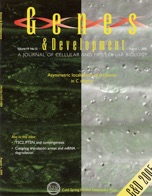Publication


Research articles
Publication
Asymmetric cortical and nuclear localizations of WRM-1/β-catenin during
asymmetric cell division in C. elegans. Takeshita, H. and Sawa, H. Genes &
Development 19, 1743-1748 (2005) PubMed CDB WEB news
Multiple Wnts redundantly control polarity orientation in Caenorhabditis elegans epithelial stem cells.
Yamamoto Y., Takeshita H. & Sawa H. PLoS Genetics 7, e1002308 (2011)

Distinct and mutually inhibitory binding by two diverged β-catenins coordinates TCF levels and activity in C. elegans. Yang X., Huang S., Lo M., Mizumoto K., Sawa H., Xu W., Robertson S. & Lin R. Development 138, 4255-4265 (2011) Pub Med
Wnt regulates spindle asymmetry to generate asymmetric nuclear β-catenin
in C. elegans. Sugioka K., Mizumoto K. & Sawa H. Cell 146, 942-954 (2011)
The C. elegans RUNX transcription factor RNT-1/MAB-2 is required for asymmetrical cell division of the T blast cell. Kagoshima, H., Sawa, H., Mitani, S., Burglin, T., Shigesada, K., Kohara, Y. Developmental Biology 287, 262-273 (2005) PubMed
Wnt signals can function as positional cues in establishing cell polarity. Goldstein, B., Takeshita, H., Mizumoto, K. and Sawa H. Developmental Cell 10, 391-396(2006) PubMed CDB WEB news
Wnt signaling and a Hox protein cooperatively regulate PSA-3/MEIS to determine daughter cell fate after asymmetric cell division in C. elegans. Arata Y., Kouike, H., Zhang, Y., Herman, M. A., Okano, H. and Sawa, H. Developmental Cell 11, 105-115 (2006) PubMed CDB WEB news
Cortical β-catenin and APC regulate asymmetric nuclear β-catenin localization during asymmetric cell division in C. elegans. Mizumoto K. & Sawa H. Developmental Cell 12, 287-299(2007) PubMed CDB WEB news
Cyclin E and CDK2 repress the terminal differentiation of quiescent cells after asymmetric division in C. elegans. Fujita M., Takeshita H. and Sawa H.
PLoS ONE 2, e407 (2007) PubMed Full Text (open access) CDB WEB news
RMD-1, a novel microtubule-associated protein functions in chromosome segregation in Caenorhabditis elegans. Oishi K., Okano H. and Sawa H. Journal of Cell Biology 179, 1149-1162 (2007) PubMed CDB WEB news
β-Catenin asymmetry is regulated by PLA1 and retrograde traffic in C. elegans stem cell divisions. Kanamori T., Inoue T., Sakamoto T., Gengyo-Ando K., Tsujimoto M., Mitani S., Sawa H., Aoki J. and Arai H. EMBO Journal 27, 1647-1657 (2008) PubMed
Complex network of Wnt signaling regulates neuronal migrations during C. elegans development. Zinovyeva A. Y., Yamamoto Y., Sawa H. and Forrester W. C. Genetics 179, 1357-1371 (2008) PubMed
Regulation of asymmetric positioning of nuclei by Wnt and Src signaling and its roles in POP-1/TCF nuclear asymmetry in C. elegans. Sugioka K. & Sawa H. Genes to Cells, 15, 397-407 (2010) PubMed Full Text (open access) CDB WEB news
The Caenorhabditis elegans gene lin-17, which is required for certain asymmetric cell divisions, encodes a putative seven-transmembrane protein similar to the Drosophila Frizzled protein. Sawa, H., Lobel, L and Horvitz H. R. Genes & Development 10, 2189-2197. (1996) PubMed
WRM-1 activates the LIT-1 protein kinase to transduce anterior/posterior polarity signals in C. elegans. Rocheleau, C. E., 1, Yasuda, J., Shin, T. H., Lin, R., Sawa, H., Okano, H., Priess, J. R., Davis, R. J., and Mello, C. C. Cell 97, 717-726. (1999) PubMed
Components of the SWI/SNF complex is required for asymmetric cell division in C. elegans. Sawa, H., Kouike, H. and Okano, H. Molecular Cell 6, 617-624 (2000) PubMed
The C. elegans septin genes, unc-59 and unc-61, are required for normal postembryonic cytokineses and morphogenesis but have no essential function in embryogenesis. Nguyen, T., Sawa, H., Okano, H. and White, J. G. Journal of Cell Science 113, 3825-3837 (2000) PubMed
MSI-1, a neural RNA-binding protein, is involved in male mating behaviour in Caenorhabditis elegans. Yoda, A., Sawa, H. and Okano, H. Genes to Cells 5, 885-895 (2000) PubMed
Critical role of C. elegans homologs of Cds1/Chk2-related kinases in meiotic recombination. Oishi, I., Iwai, K., Kagohashi, Y., Fujimoto, H., Kariya, K., Kataoka, T., Sawa, H., Okano, H., Otani, H., Yamamura, H. and Minami, Y. Mol. Cell Biol. 21, 1329-1335 (2001) PubMed
tcl-2 encodes a novel protein that acts synergistically with Wnt signaling pathways in C. elegans. Zhao X, Sawa H and Herman MA Developmental Biology 256, 276-89 (2003) PubMed
Components of the transcriptional Mediator complex are required for asymmetric cell division in C. elegans. Yoda, A., Kouike, H., Okano, H. and Sawa, H. Development 132, 1885-1893. (2005) PubMed CDB WEB news
A β-catenin identified by functional rather than sequence criteria and its role in Wnt/MAPK signaling. Kidd, A. R. Miskowski, J. A., Siegfried, K. R., Sawa H. and Kimble, J. Cell 121, 761-772 (2005) PubMed

The right image was not used as a cover art for Cell.
Multiple functions of PBRM-1/Polybromo- and LET-526/Osa-containing chromatin remodeling complexes in C. elegans development. Shibata Y., Uchida M., Takeshita H., Nishiwaki, K. & Sawa H. Dev. Biol. 361, 349-357 (2012) Pub Med NIG Research Highlights
The SWI/SNF Chromatin Remodeling Complex Selectively Affects Multiple Aspects of Serotonergic Neuron Differentiation. Weinberg, P., Flames, N., Sawa, H., Garriga, G. & Hobert, O. Genetics 194, 189–198 (2013) Pub med
HTZ-1/H2A.z and MYS-1/MYST HAT act redundantly to maintain cell fates in somatic gonadal cells through repression of ceh-22 in Caenorhabditis elegans. Shibata, Y., Sawa, H. and Nishiwaki, K. Development 141, 209-218 (2013) PubMed NIG Research Highlights
Power law relationship between cell cycle duration and cell volume in the early embryonic development of Caenorhabditis elegans. Arata, Y., Takagi, H., Sako, Y., and Sawa. H. Front. Physiol. 5, 529 (2014) Full Text (open access) NIG Research Highlights
The Mediator Kinase Module Restrains Epidermal Growth Factor Receptor Signaling and Represses Vulval Cell Fate Specification in Caenorhabditis elegans. Grants, J.M., Ying, L.T., Yoda, A., You, C.C., Okano, H., Sawa, H., Taubert, S. Genetics 202, 583-99 (2015) Pubmed
Cortical Polarity of the RING Protein PAR-2 Is Maintained by Exchange Rate Kinetics at the Cortical-Cytoplasmic Boundary. Arata Y, Hiroshima M, Pack CG, Ramanujam R, Motegi F, Nakazato K, Shindo Y, Wiseman PW, Sawa H, Kobayashi TJ, Brandão HB, Shibata T, Sako Y. Cell Reports 16, 2156–2168 (2016) Full Text (open access)
PIGN prevents protein aggregation in the endoplasmic reticulum independently of its function in the GPI synthesis. Ihara S, Nakayama S, Murakami Y, Suzuki E, Asakawa M, Kinoshita T and Sawa H. Journal of Cell Science 130, 602-613 (2017) Pub med NIG Research Highlights
The tumor suppressor APC is an attenuator of spindle-pulling forces during C. elegans asymmetric cell division. Sugioka K., Fielmich LE., Mizumoto K., Bowerman B., van den Heuvel S., Kimura A., and Sawa H. PNAS 115 E954-E963 (2018)
Modified auxin improves the auxin-inducible degradation (AID) system for laid C. elegans embryos. Negishi T., Asakawa M., Kanemaki MT. and Sawa H. microPublication Biology. 10.17912/micropub.biology.000190 (2019)
The auxin-inducible degron 2 (AID2) system enables controlled protein knockdown during embryogenesis and development in Caenorhabditis elegans. Negishi T., Kitagawa S., Horii N., Tanaka Y., Haruta N., Sugimoto A. Sawa H., Hayashi, K., Harata M. and Kanemaki M. Genetics in press https://pubmed.ncbi.nlm.nih.gov/34865044/

Copyright (C) 2010 NIG Multicellular organization lab. All Rights Reserved.




